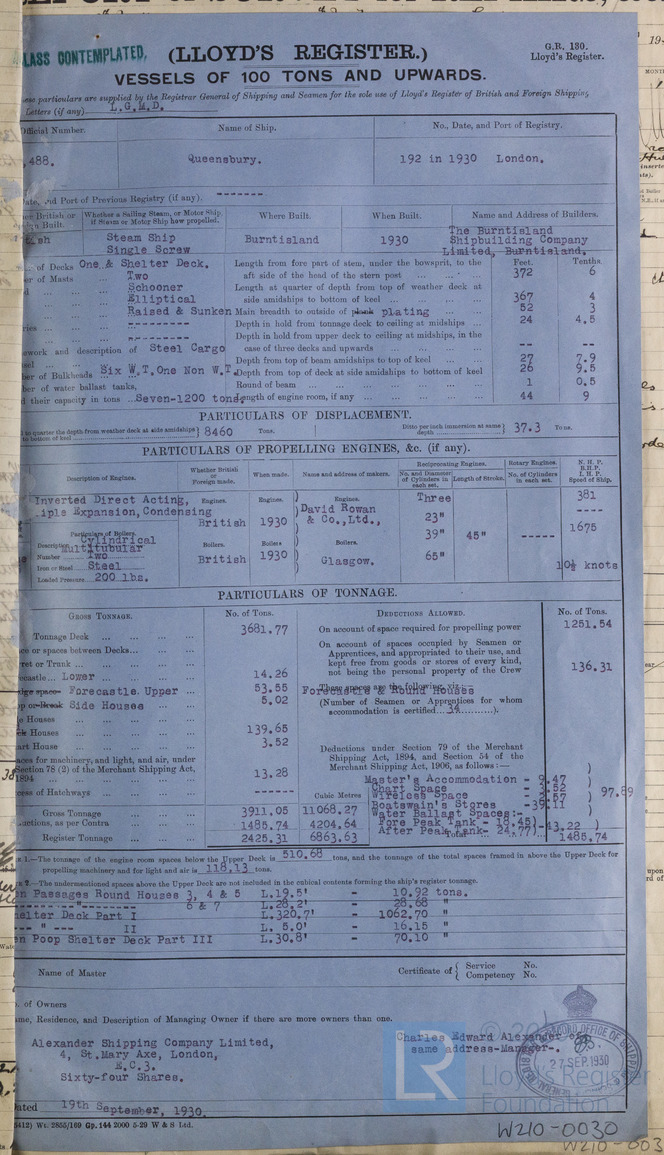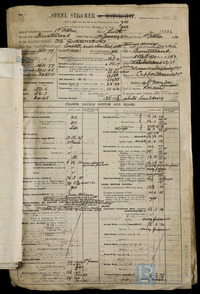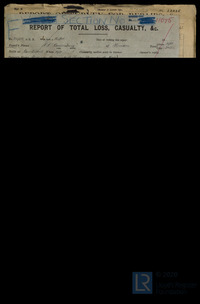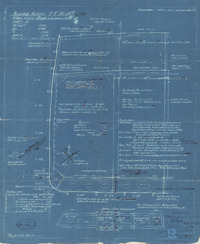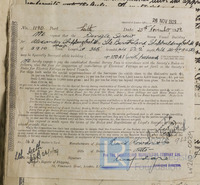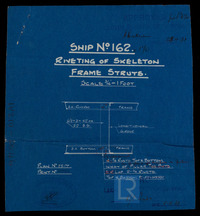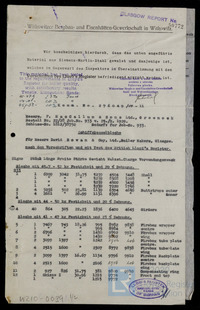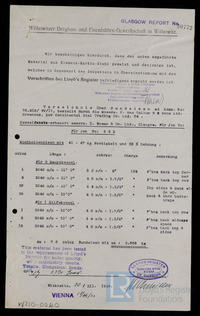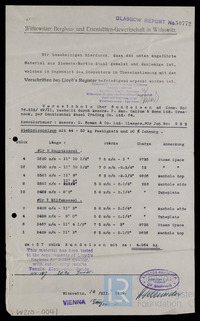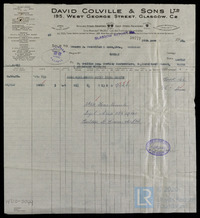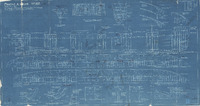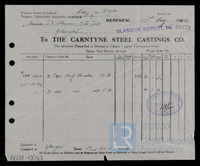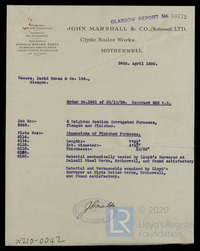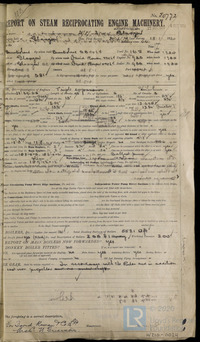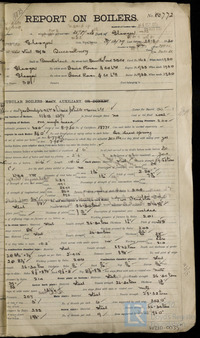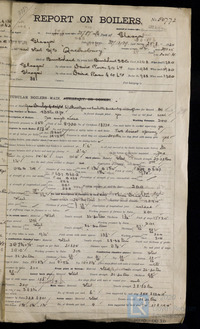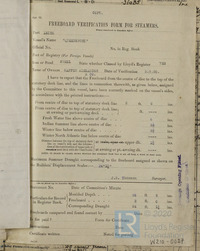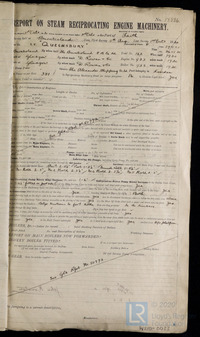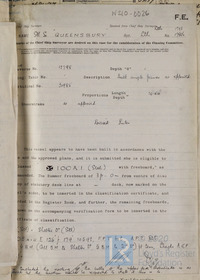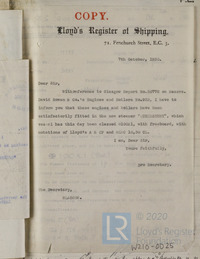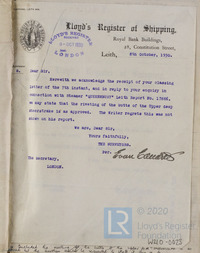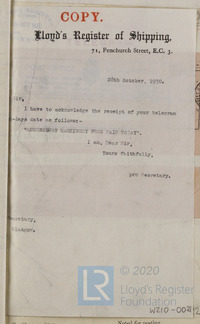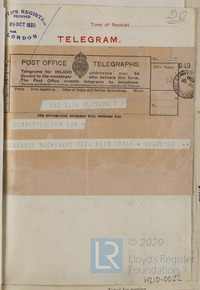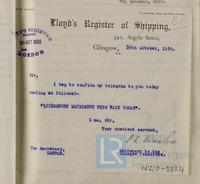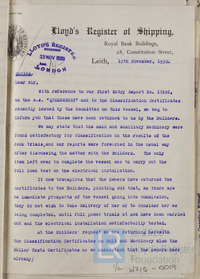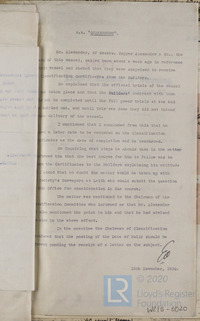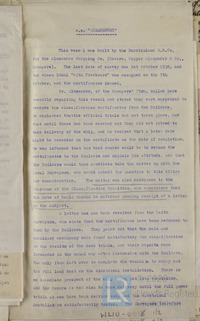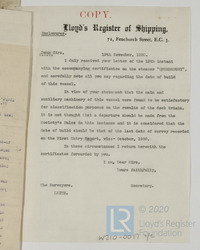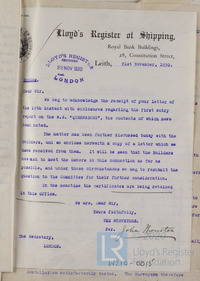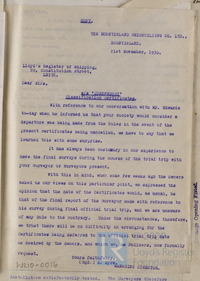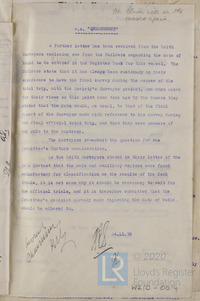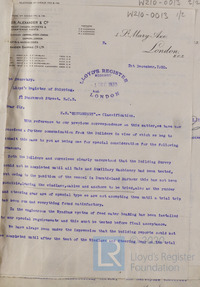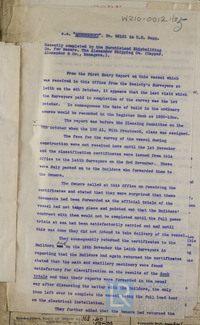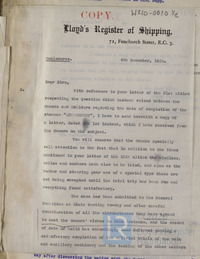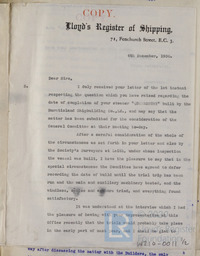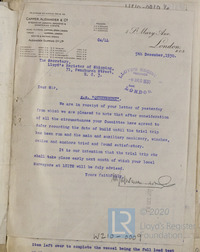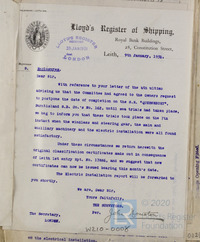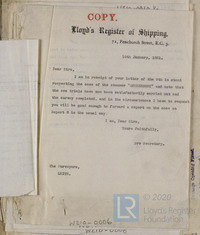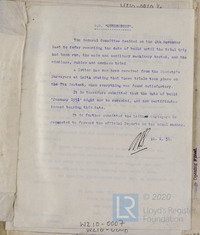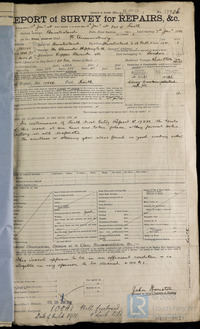- Related documents Related
- Full details Details
- Report document? Report?
Use the data export button to extract customised data sets from the Ship Plan and Survey Report Collection. Available in TSV and CSV formats.
Date recorded as the time of writing.
19/09/1930
The year in which a vessel’s construction is completed.
1931
The individual and/or organisation listed as having been responsible for constructing the vessel. This can/may be the same as the owner and/or manager.
The Burntisland Shipbuilding Co Ltd
The port or place in which the vessel’s construction took place, at the time of writing.
Burntisland
Official administrative title (often printed) of a record used by Lloyd’s Register or external organisations.
GR130 Vessels of 100 tons & upwards
Records that constitute Lloyd’s Register’s first official encounters with a specific vessel, e.g. a survey report.
N
The individual and/or organisation listed that is responsible for the everyday management of a ship. This may be the same as the owner.
Charles Edward Alexander
Physical arrangement of a ship’s masts, sails and rigging.
Sr - Schooner
Predominant material(s) utilised in a vessel’s construction.
Steel
A ship’s total internal volume in ‘register tons’ (replaced by gross tonnage post 1982).
3911
Location of construction for a vessel’s engines.
Glasgow
David Rowan & Co Ltd
Is machinery fitted at the aft of the vessel?
No
Generally a smaller additional auxiliary boiler (often used while the vessel is at port).
No
Name of the Proving House responsible for the public testing and certification of a vessel’s anchors and/or chain cables.
No
Contextual information related to the reasons of the vessel’s loss or disposal.
Sunk by Aircraft
Recorded date for the vessel’s loss or disposal.
06/06/1941
Name of ship as recorded on the record
Queensbury
The process of transferring a vessel to water, but not necessarily her completion.
25/08/1930
Unique identifier for a given ship, it is assigned by a builder.
162
Previously referred to as signal letters (c.19th C), radio call signs enable a ship to communicate and are assigned by the International Telecommunications Union (ITU).
LGMD
The port in which a vessel is registered or permanently based.
London
The individual and/or organisation listed
Alexander Shipping Co Ltd
Location where the document is written.
London
A vessel’s means of propulsion.
Steam
Is the steamer assisted by sail?
No
Type and configuration of the engine(s) supplied for a vessel.
Inverted Direct acting Triple Expansion Condensing
Date in which construction of a vessel’s engines were completed.
1930
Confirmation as to whether the vessel was equipped with refrigeration machinery to aid in the transport of frozen or chilled cargo/goods.
No
Does the vessel possess an auxiliary power source?
No
Is electric lighting fitted to the vessel?
No
The official record pronounced by the Committee
Sunk by aircraft
Vessel’s area of loss or disposal/last known recorded location.
North Sea
Physical extent of a record.
1
Report an issue with this document
Have you noticed missing or incorrect data or images for this document?
Please let us know and we will rectify the issue as soon as possible.

